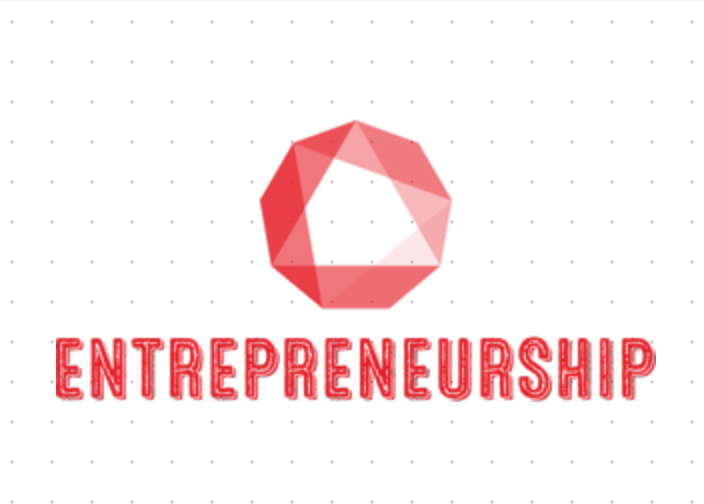The Basics of Entrepreneurship for Teens with Duke University Professor
Entrepreneurship…what is it? Well entrepreneurship consists of many concepts ranging from finance to leadership. But in short entrepreneurship is creating your own business, taking on risks, and creating a profit from the product or service you sell. The person who created that start-up company is called an entrepreneur. An entrepreneur is usually the person bearing most of the risks and enjoying most of the rewards. The entrepreneur is commonly seen as an innovator, a source of new ideas, goods, services, and business/or procedures. When you first think about an entrepreneur, you might imagine Steve Jobs—the founder of Apple, Elon Musk—the founder of Tesla, or even Larry Page—the founder of Google. All of these entrepreneurs had one thing in common: dedication.
The question then becomes: why is entrepreneurship important and what can it do for you? Entrepreneurship is important because it allows individuals to experience failure and success, entrepreneurship is important because it allows individuals to experience failure and success, encouraging personal growth over time. As Mark Cuban says, “entrepreneurship is the ultimate sport. It’s an exciting way to do life. You have a direct impact on the economy, create jobs, create wealth and solve a multitude of problems that make peoples’ lives better.” Entrepreneurship is important as it has the ability to improve standards of living and create wealth, not only for the entrepreneurs, but also for related businesses. Entrepreneurs also help drive change with innovation, where new and improved products enable the development of new markets.
Now at first you might say, “This is quite overwhelming.” But in reality entrepreneurship doesn’t have to be as complicated as it sounds. Small businesses such as lemonade stands, homemade goods, and selling clothes are all considered businesses that apply entrepreneurship skills. Remember, a business is anything that offers a service or a product and can consist of a group of people or just yourself. Many high schoolers have spent time and energy into building business as investments to pay off portions of their college loans or to spend on things they want. Investing time and energy into a business is not as risky as it looks on Shark Tank—even starting off small and investing a little bit of money can still make a business successful. To help you start thinking about how the process of creating a business works, here are a couple of steps that our staff have amassed to help you out.
The basic brainstorm: An entrepreneur starts with what they want to achieve. It is heavily reliant on determining a problem you think needs a solution. For example, you might want to contribute to your community by providing people an alternative way of buying brand new clothes: by selling your slightly used clothes. Now a probable cause may seem small and unimportant but the real deal lies in how innovative your solution is to fix that issue. Prisha Parashar, a sophomore at Dublin High who participated in last year’s engineering entrepreneurship project explained, “Entrepreneurship is just another way of talking about the process of innovation. It allows people to do what they love and find success in their own unique way, all while solving societal problems or putting out exciting new solutions.”
The next step is to determine the assets and skills needed to be successful and attend to your customer needs. This may keep changing throughout the process, as your small business starts to take shape. By determining the necessary materials for your business, you can calculate your profit based upon the cost of your materials. Rishita Dwivedi, a junior at Dublin High taking ROP Integrated Manufacturing stated, “When you’re an entrepreneur, it’s important to conduct market research to understand what your customers’ wants and needs are. You are more likely to be successful if your customers’ wants and needs are incorporated into your product.” An exemplary entrepreneur will keep improving their products or services to help a bigger number of customers or to improve their services for existing customers.
Our staff had the opportunity to interview The Chair of Entrepreneurship at Duke University’s School of Business, Jon Fjeld, who was able to share his wisdom regarding the basics of entrepreneurship. Many people attempting to go into business make the mistake of only believing completely new ideas will succeed, when in reality “Being different is not necessarily valuable, being better for the customer – that’s the key to any successful venture”. There is no such thing as a saturated market in this case, as long as you can do the task better. Be it a cleaner interface or more customer satisfaction, if your company provides the best service you will see compensation. A prime example of this is with social media companies. For the longest time Facebook and Twitter dominated the social media field, but that all changed when Instagram entered the game. Instagram was able to provide an objectively better service of connecting people with stories, private dms, and posts, and because of this outsurged Twitter with a wild 1 billion active users.
However, entrepreneurship is unpredictable, as the most common reason teenagers and adults alike quit their business is because they lose focus. It’s easy to think of a good idea, but within time you’ll realize starting a business is not as easy as it seems. Fjeld commented on the struggles of starting a business, “The Entrepreneur faces 3 types of risk: execution, demand, and financing.” Going one by one, the execution of the brand is extremely important as thousands of companies are dropped everyday from giving up. If you create a killer company idea, make sure you execute the plan and from there on keep moving forward.
Additionally, if your company does not serve a high demand, it won’t see much success. Supply and demand shows that when more people want a service, companies will need to adhere to that service. Let’s say you thought of a company that involves huge rubber ducks. Sure, you could execute this by creating the ducks, but the company simply wouldn’t see success as the demand for huge rubber ducks is extremely small. For high demand products, think of objects you couldn’t live without or that make everyday life much easier.
Last and most importantly is financing. Businesses are not cheap, so before starting your company you should create a simple budget to follow. As you go further into your company you’ll notice more and more areas you have to pour money into, such as creating the actual product or getting them into retail stores. Based on how much money you have to spend you can then think of different ideas to sell the product. For example instead of paying for the product to be in stores you could go door to door attempting to sell it for free.
In conclusion, there are many risks in becoming an entrepreneur but also so many rewards along the journey. So remember to never give up and be dedicated to your work, as the true entrepreneur is a doer not a dreamer.
Your donation will support the student journalists of Dublin High School. Your contribution will allow us to purchase equipment and cover our annual website hosting costs.

Logan Lin, a junior at Dublin high school, plays guitar, and has played both JV baseball and football during the first two years of his high school career....



































